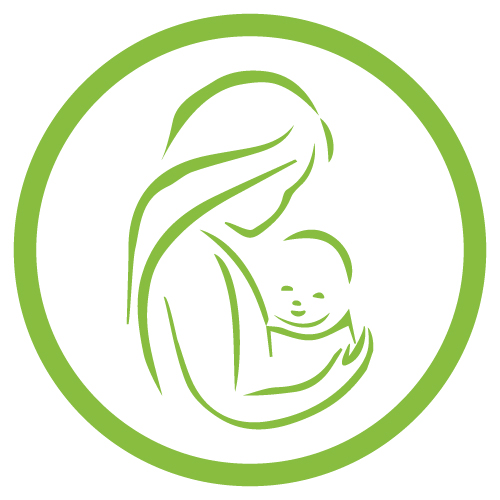
Preventing and Healing Trauma in the Perinatal Period Lecture Pack
This lecture was originally offered as part of the GOLD Birth & Beyond Conference 2020.
Trauma experienced in the perinatal period is a growing concern. Birth trauma can have long lasting effects, including increased rates of Perinatal Mood and Anxiety Disorders and the potential negative impact on maternal child bonding, the adjustment to parenthood and family dynamics. This package provides care providers with knowledge and tools to help prevent perinatal trauma and empower their clients in their healing if trauma occurs. Learn more about strategies to mitigate feelings of helplessness, the importance of reflective practice in providing trauma informed care, childbirth preparation for survivors, ways to help birth partners struggling with trauma, overcoming barriers in black maternal health, and the EMDR recent birth trauma protocol.
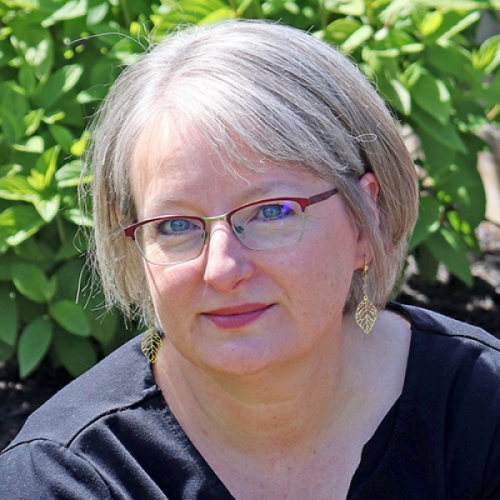

Billie has been serving birthing families for 35 years as a mentor, breastfeeding counsellor, childbirth educator, doula, and traditional birth attendant. She is the Founder and Director of Birth Trauma Ontario, an agency that advocates on behalf of parents for universal training in trauma-informed care for all perinatal health care providers and provides training and skills development for primary and allied health care professionals. Billie authored the world's first accredited certification course for becoming a trauma-informed professional specific to caring for the perinatal client. She has devoted decades to following the research that explores issues of maternal and infant health, birthing safety, and midwifery and obstetric practices in the context of culture and structural violence. She has educated doulas, midwives, physicians, nurses, and lactation counsellors in over 120 countries. Billie has been blessed with a very full life with 7 wonderful children, several amazing in-laws, some adorable grandchildren, a couple of decades of homeschooling, and hundreds of families who invited her into their families as they welcomed their precious babies.
Objective 1: Describe clinician behaviours during delivery of care that can be perceived as disempowering for the client.
Objective 2: List 5 key behaviours in the client that message feelings of helplessness during delivery of care.
Objective 3: Demonstrate behavioural and vocabulary changes in delivery of care that lessen the potential for a client to perceive disempowerment and experience helplessness.
Throughout the world, about one-third of birthing women describe their births as “traumatic”. A significant number of these mothers will enter parenthood with symptoms of trauma, including intrusive memories, avoidance, hypervigilance, and health problems. Some will meet all the criteria for post-traumatic stress. This can impact bonding with the baby, breastfeeding, maternal mental health, physical health, dynamics within the family, and increases the potential for adverse experiences and future health concerns for the child. A traumatic experience also impacts her future birthing choices and experiences. Research identifies negative interactions with health care providers, particularly where the mother feels a sense of helplessness, as the most significant risk for a traumatic experience. This presentation examines the experiences of women to identify the key aspects of delivery-of-care that promotes a sense of helplessness. Understanding how routine elements of care can be perceived as disempowering will equip participants to implement significant changes in how care is delivered to reduce the potential for a traumatic experience for the mother.
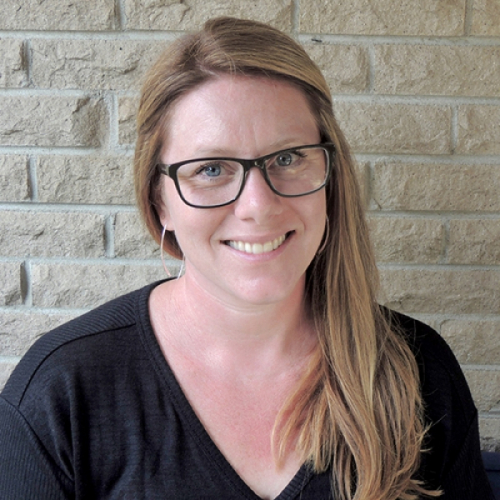

Sarah McNamee is a Licensed Clinical Social Worker and endorsed as an Infant Mental Health Mentor (Clinical). She is the Director/Owner of McNamee & Associates, LLC, a company that specializes in infant and early childhood mental health and supports families, communities, and providers through direct service, consultation, supervision/mentoring, and training. Sarah’s specialties include infant/early childhood mental health (with a focus on supporting families with baby/young child born premature, babies and young children with special health care needs, and highly sensitive babies/young children/parents), supporting infant regulation, reflective practice, and the provision of reflective supervision/consultation. Sarah is passionate about co-creating spaces that welcome the inherent wisdom and strength of individuals and communities in a trauma-informed and culturally responsive way. It is in these spaces that we discover the best tools we have for supporting individuals and communities, as well as changing our systems of care for babies, young children, and families. Sarah is the parent to three beautifully amazing and challenging human beings who continue to teach her the true meaning of intentional, attuned, and responsive caregiving.
Objective 1. List at least (3) signs of regulation and at least (3) signs of dysregulation for themselves as well as others
Objective 2. Describe the ways in which their regulatory abilities impact their relationships and the ways in which their relationships impact their regulatory abilities.
Objective 3. Describe how to implement at least two (2) new aspects of reflective practice into their work.
"Grounded in the concept that “how you are is as important in what you do"" (Pawl & St. John, 1998), this presentation will allow participants the chance to learn about and engage in reflective practice. Reflective practice is the discipline of regularly “stepping back” to consider the meaning of what has transpired in relationships, and to examine one’s professional and personal responses to these interactions for the purpose of determining further action. (Emde, et al., 2001) Best practice suggests that by consistently engaging in reflective practice, we are better equipped to do our work in a relationship-based, trauma-informed, culturally responsive way.
Our time together will begin with the exploration of the possible ways in which stress and dysregulation (as well as regulation) show up in our bodies, our work, and in our lives. Through the use of didactic instruction and experiential exercises, we will then spend time learning about and utilizing reflective practice to better understand how to best support our regulation and strengthen the connections we build with others including the parents and babies we serve. "
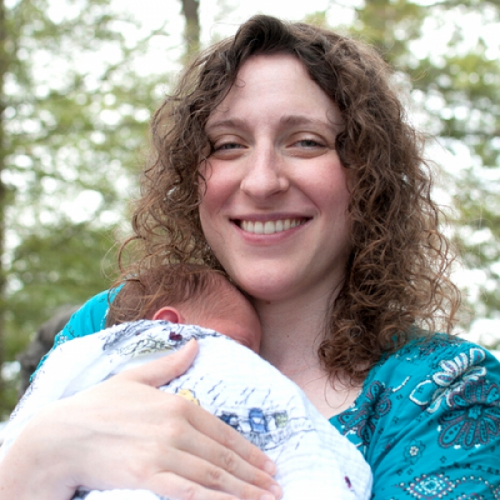

Dr Justine Leach is an advocate for trauma-informed care in the perinatal period and co-founder of Resilient Birth, a company which trains healthcare providers and other perinatal professionals in supporting survivors giving birth. She also helps expectant parents with histories of trauma prepare for childbirth through trauma-informed childbirth education classes and birth support planning. Dr Leach became a B.A.C.E. certified childbirth educator and advocate after the birth of her two children revealed the impact of trauma experiences on childbirth. She has a Ph.D. on representations of sexual consent in narratives of rape and sexual trauma, and facilitates the Trauma-Informed Perinatal Professionals facebook group. Justine speaks about the experience of giving birth as a survivor of rape and the important role healthcare providers and perinatal professionals play in a birth giver’s experience of trauma or healing.
Objective 1: Discuss the impact of previous trauma on pregnant people
Objective 2: Explain how to create greater safety in their relationships with pregnant people
Objective 3: Describe how to help birth givers prepare for birth through a trauma-informed lens
Survivors of trauma are at an increased risk not only of experiencing post-traumatic stress symptoms during their pregnancy, but also birth trauma and postpartum PTSD. Yet too often survivors’ needs are ignored and traditional childbirth preparation is neither trauma-informed nor supportive of survivors’ emotional experiences. This presentation envisions what childbirth preparation looks like from a trauma-informed perspective. It will explore how to create safety in our relationships with birth givers, how to help survivors feel their power, and how to hold space for their emotional journey to parenthood. I discuss the impact of previous trauma on birth givers in pregnancy and birth, and explore what can be done prenatally to prevent birth trauma. Participants will gain practical skills for supporting survivors’ emotional wellbeing and for helping them to plan for a safe birth experience. This involves rethinking the birth plan. Instead of merely articulating a birth givers’ preferences for or against interventions, a birth plan should be rethought as a Birth Support Plan: that is, it should communicate what a birth giver needs to feel safe, understood, and in control of the decisions they make around their care whether their birth goes to plan or not.


I am a Clinical Psychologist and transformation coach for women. I’ve also taught childbirth education. I have 12+ years experience supporting families through the worst traumas imaginable, to find growth, strength and beautiful resilience they never knew possible. After experiencing my own birth trauma (twice!) I quickly learned how little support and training there is for our birth workers who hear and witness these stories every day. From this, I developed two birth trauma training courses – one for parents, and one for birth workers. I gained over 650 enrolments in 3 months, so I know how much this work is needed. I also run a birth trauma training podcast, and I’m currently finishing writing my book. A beautiful, heartfelt call to action for families to not only find strength and growth after birth trauma, but to become the guardians of change in birth culture for the next generation.
Objective 1: Describe the bystander effect and vicarious trauma AND how to validate and educate partners around these experiences
Objective 2: Explain the difference between posttraumatic growth and resilience AND use this to inspire birth partners in their own healing
Objective 3: List five practical coping strategies to use with yourself, birthing people, their partners (and anyone else you know!) to begin to manage trauma reactions
"Birth trauma impacts at least 1 in 3 birthing people, but who is often left out of the picture? The partners. Vicarious trauma in birthing partners is very real, and yet there is little to no acknowledgment let alone resources to help.
Witnessing birth trauma in one’s partner has the potential to: (1) create severe cognitive dissonance (“I know what happened to my partner was wrong, yet I did nothing to stop it”), (2) contribute to unresolved feelings of shame, guilt, helplessness and rage, and/or difficulties with bonding (3) contribute to heightened nervous system activity (e.g., oscillating between ‘fight’ mode and ‘freeze’ mode), and (4) contribute to unhelpful, negative birth storytelling culture which minimizes the role of partners.
On the contrary, partners who are well supported (emotionally, cognitively and socially) have phenomenal potential for growth. In this presentation, we will explore what it means to work with partners through the lens of posttraumatic growth. How to validate and educate about trauma in a way that allows partners to step into self-compassion. We will explore how to inspire partners to see their own potential for growth, leadership and even advocacy.
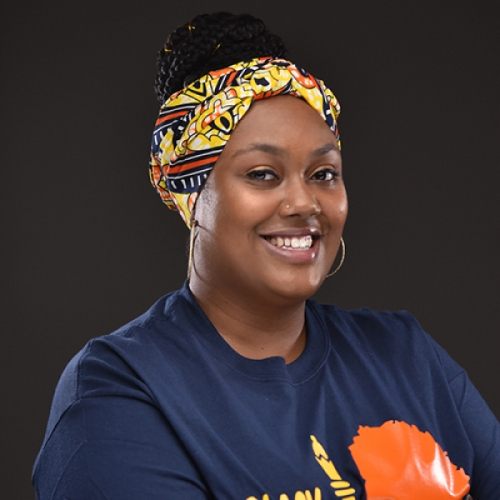

Saleemah McNeil is a Reproductive Psychotherapist, Certified Lactation Consultant, professionally trained Birth Doula and a traumatic birth survivor. Saleemah has dedicated her work to helping families of color heal from traumatic birth experiences and transition into parenthood. Saleemah has held several positions in the field of Maternal & Child Health and Wellness. Mrs. McNeil furthered her knowledge and experience with vulnerable birthing persons and served as a Philadelphia County Jail Based Case Manager at Riverside Correctional Facility. In this role, she assisted birthing women during their most vulnerable times as a Doula. Working in the Department of Corrections, ignited anger and passion which ultimately guided Saleemah to a masters in clinical psychology and counseling . After watching years of unfair treatment and inhumane conditions, reproductive injustice, systemic racism and trauma, Saleemah founded a nonprofit organization, Oshun Family Center. She launched a citywide initiative to reduce Black maternal mortality through the “Maternal Wellness Village” program and became a key figure and content area expert in the region. Mrs. McNeil's work is rooted in a deep appreciation and understanding that surviving the 4th trimester can mean life or death for some women. As a clinician, advocate, researcher and trainer, Mrs. McNeil’s work is grounded in helping families not only survive but thrive by utilizing an anti-racism and trauma sensitive framework. Her passion has driven her to explore new endeavors such as impacting policy change and ultimately shifting the provider - client dynamic in healthcare by addressing the disparities for Black women.
Objective 1: Describe and assess the impact of a culturally and racially-concordant, integrative perinatal care model on reducing adverse birthing outcomes among Black birth persons.
Objective 2: Discuss medical practices and actions that contribute to maternal disparities.
Objective 3: Demonstrate capacity for self awareness and understanding of the impact of trauma on birthing folks.
The overarching goal of this presentation is to raise awareness and provide practical approaches to improving Black maternal health through a community-driven, culturally relevant, social-ecological approach to optimize perinatal health. There is a fundamental need for multilevel interventions emerging from the lived- experience and expertise of Black women that provide support from early pregnancy through the end of the first postpartum year - - interventions that utilize a reproductive justice framework to address individual lifestyle behaviors in the context of resilience, family and relationships, along with community-level factors and institutional and societal barriers, including structural racism. Yet, a paucity of evidence-based treatments exist. To remedy this treatment gap, we will discuss a multidisciplinary approach to interacting with birthing folks. Address the impact of structural racism and respectful maternity care as it contributes to adverse outcomes for birthing families.


Maria Caterina Cattaneo is a psychotherapist with a psychodynamic orientation and EMDR practitioner. In the 90s she accumulated a large experience in the field of the clinical psychology of the developmental age, both in public hospitals (Child and Adolescent Neuropsychiatry department in Lecco, and a collaboration with the department of Neonatal Pathology in Monza), and in the Scientific Institute Eugenio Medea in Bosisio Parini, where she has also done research on depression in children and adolescents, giving an important contribution to the Italian version of the Achenbach CBCL (4-18) . For several years she worked on the protection of minors (at the department of Social Services of the city of Monza) , conducting diagnosis and microanalysis of highly conflictual couples, and support groups for parents. Besides her free practice, since 2006 she has been coordinating the project on “When birth becomes crisis”, a collaborative project between the departments of Neonatology and Neonatal Pathology of the Maternity Hospital Mangiagalli in Milan and the Consultorio Familiare “Genitori Oggi”and , since the last year, in the Humanitas Hospital PioX. The clinical activity consists of psychological work in the maternity wards, inside the Hospital, and, when needed, therapeutic intervention with mothers or fathers , couples or mother - infant bonding at the Perinatal Psychology Unit, founded in 2006 at the same hospital. Since 2008 she has started the research activity of the Unit on the prevention of post-partum depression; some results of this research have been published in international journals, and have been presented at several AISMI conferences, while others are in the process of publication. In the last years she has started, with her collaborators, a new research project based on the use of EMDR in perinatal psychology, implying the preparation of two new protocols on delivery trauma and problems concerning breastfeeding.
Objective 1: Explain how birth might become a crisis and the importance of early intervention.
Objective 2: Describe the benefits of introducing EMDR as a clinical intervention on the maternity ward.
Objective 3: Explain the EMDR protocol for treating birth trauma.
After childbirth, between 3 and 9% of women develop trauma-related symptoms characterized by a constant state of alert as if the danger was still ongoing. This can include intrusive memories / intrusive images, sleeping disorders and signs of dissociation. Puerperal women may experience a sense of inadequacy and / or impotence. If untreated, these peri-traumatic issues can affect the mental and physical health of the mother. The follow-ups of a birth trauma can also lead to significant impairment in the construction of a secure prìmary relationship between the mother and the baby {the basis of the subsequent attachment bond). A secure attachment, on the other hand, is a protective factor against possible psychological and psychiatric problems in childhood, adolescence and adulthood. This presentation will will provide an introduction to the use of Eye Movement Desensitization and Reprocessing (EMDR) as a treatment for birth trauma and how it may be clinically applied in the maternity ward.
Accreditation
CERPs - Continuing Education Recognition Points:
GOLD Conferences has been designated as a Long-Term Provider of CERPs by the IBLCE--Approval #CLT114-07. This program has been approved for 6 R-CERPs.
Midwifery CEUs - MEAC Contact Hours:
This program is accredited through the Midwifery Education & Accreditation Council (MEAC) for 6 Contact Hours or 0.6 CEUs. Please note that 0.1 MEAC Midwifery CEU is equivalent to 1.0 NARM CEUs.
If you have already participated in this program, you are not eligible to receive additional credits for viewing it again. Please send us an email to [email protected] if you have any questions.
Additional Details
Viewing Time: 4 weeks
Tags / Categories
(IBCLC) Psychology, Sociology, and Anthropology, Birth Trauma, Diversity, Equity & Inclusion, Trauma-Informed Care
How much time do I have to view the presentations?
- The viewing time will be specified for each product. When you purchase multiple items in your cart, the viewing time becomes CUMULATIVE. Ex. Lecture 1= 2 weeks and Lecture Pack 2 = 4 Weeks, you will have a total of 6 weeks viewing time for ALL the presentations made in that purchase.
- Time for viewing the talks begins once you purchase the product. For Live Webinars & Symposiums, the viewing period begins from when the live event takes place. Presentations can be accessed 24/7 and can be viewed as many times as you like during the viewing period.
What are bundled lectures?
- Presentations may be available individually or via a bundled package. Bundled lectures are a set of lectures that have been put together based on a specific category or topic. Some lectures will be available in both individual and lecture form, whereas others will be available only via a bundled lecture pack.
Will there be Handouts?
- YES! Each lecture comes with a PDF handout provided by the Speaker.
Some lectures include a Q&A, what does that mean?
- During our online conferences, presentations that occur live are also followed by a short 15 minute Question & Answer Session. The Speaker addresses questions that were posted by Delegates during the presentation. We include the recording of these Q&A Sessions as a bonus for you.
How can I receive a Certificate?
- If this presentation offers a certificate, once you are done viewing the lecture or the lectures within a bundle, submit your attendance record in order to be able to download your certificate. You'll be able to see which credits are offered for the lecture by hovering over the "Credits Available" link within the "Speakers & Topics" tab.
Professionals that selected this package also viewed

|
|

|










